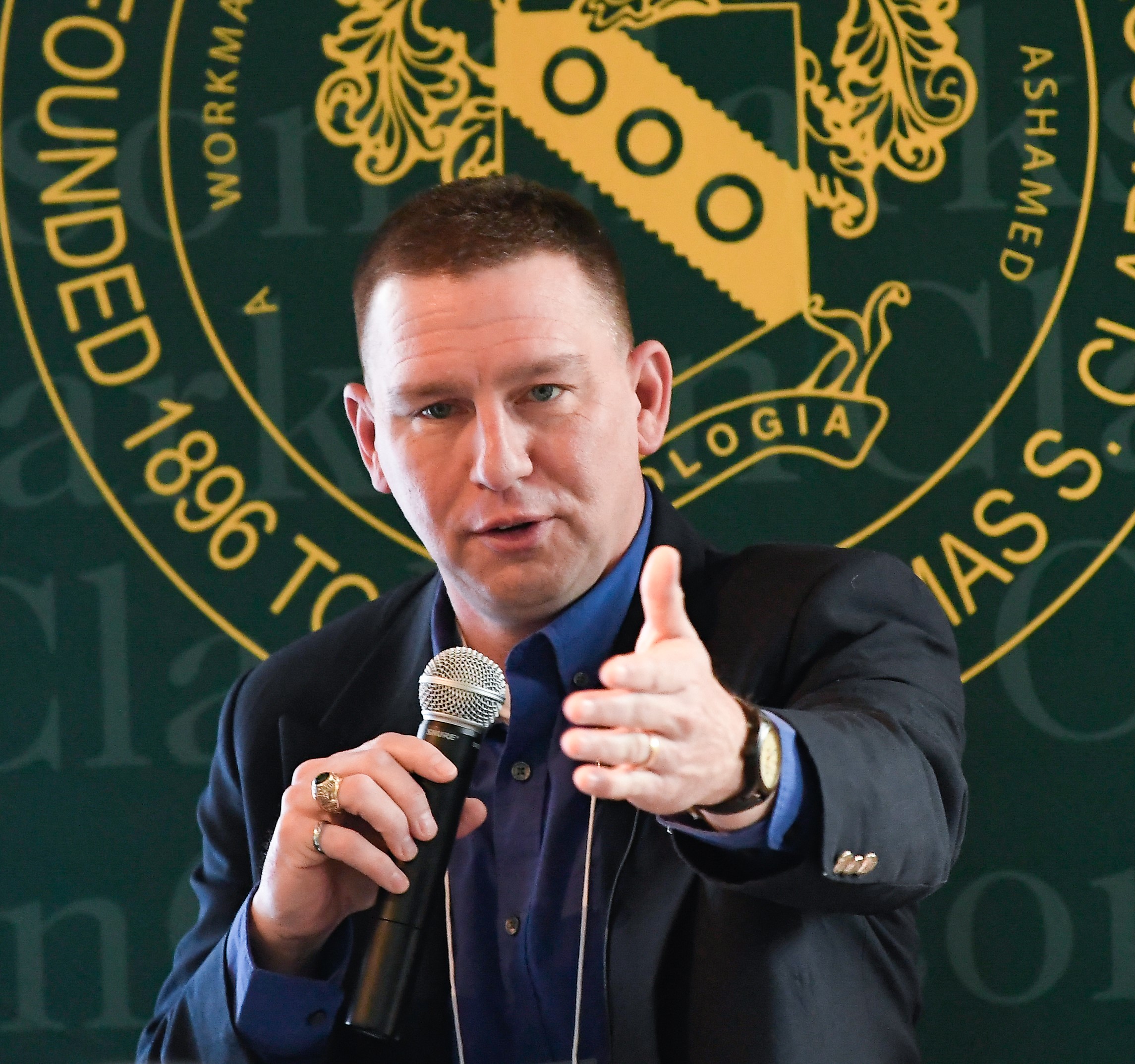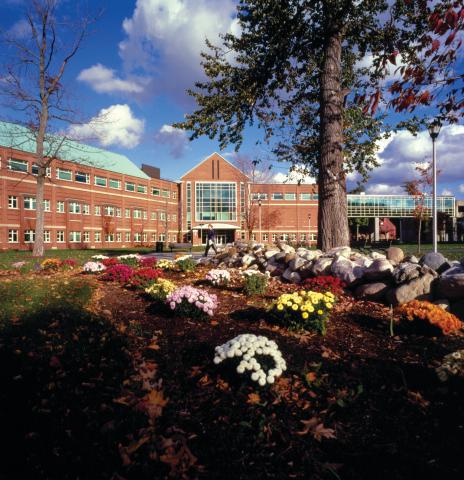Wednesday February 1, 2023 @ 2:30 PM, CAMP Building 175
CHEMICAL & BIOMOLECULAR ENGINEERING SEMINAR
DR. DEVON SHIPP
Director of the Center for Advanced Materials Processing
Professor, Department of Chemistry & Biomolecular Science
Clarkson University
Leveraging Chemistry for Shape-Memory, Self-Healing, and Recycling Applications in Polymers

To reduce the world’s dependence on plastics, much attention has recently focused on integrating dynamic functionality into polymer networks to produce new polymer-based materials having recycling, reconfiguring, and self-healing capabilities. Of particular interest are covalently adaptable networks (CANs), which are crosslinked polymeric systems that contain reversible covalent structures throughout their network that can be triggered by external stimuli (i.e., light, heat, the addition of a catalyst). The Shipp group has developed novel polyanhydride-based polymers fabricated by radical mediated polymerizations. The anhydride group can undergo reversible covalent exchange, and using radical polymerizations provides a simple, straightforward method of synthesis that can be easily scaled for industrial needs. We have exploited the dynamic covalent exchange to create stress free cross linked network polyanhydrides that can be recycled and undergo self-healing. Additionally, we have developed polyanhydride-based composites that are not only capable of exhibiting shape memory properties but the dynamic covalent exchange between anhydride moieties also allows forpermanent shape reconfiguration of the crosslinked polymer.
Friday, February 3, 2023 @ 3:30 PM, Science Center 160
ZOOM: https://clarkson.zoom.us/j/95311279180?pwd=V1dJZ1Z5aWNRN00xQWlhYVcvVHhDZz09
CHEMISTRY & BIOMOLECULAR SCIENCE SEMINAR
DR. ROBERT HICKEY
Associate Professor of Materials Science & Engineering
College of Earth and Mineral Sciences, Penn State

Nanostructured Polymer Muscles
Advances in functional soft material muscles (i.e., actuators) that contract, expand, or rotate when triggered with an external stimulus are necessary to realize the future of new robotic assemblies with superior biologically relevant functions. Current research efforts are focused on synthesizing new soft materials to mimic natural muscles from a performance perspective, but neglect the impact of chemical composition and structure, which are core features for the exceptional actuation properties of human muscles. Recently, a new class of fiber actuators have been reported that contract or rotate when triggered by heat or hydration. The fibers, termed “strain crystallized actuators” (SCAs), are produced by combining solution-phase block copolymer self-assembly and strain-programmed crystallization. The strained fibers consist of highly aligned nanoscale structures with alternating crystalline and amorphous domains, resembling the ordered and striated pattern of mammalian skeletal muscles. The presentation will first cover the necessary macromolecular parameters for creating hydrogel fibers using amphiphilic block copolymers and then the nanoscale self-assembly mechanism during straining that gives rise to the actuation properties. The versatility and recyclability of the polymer fibers, combined with the facile fabrication method, opens new avenues for creating soft actuators.



